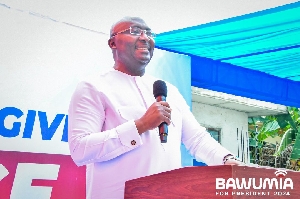- Home - News
- TWI News | TV
- Polls
- Year In Review
- News Archive
- Crime & Punishment
- Politics
- Regional
- Editorial
- Health
- Ghanaians Abroad
- Tabloid
- Africa
- Religion
- Election 2020
- Coronavirus
- News Videos | TV
- Photo Archives
- News Headlines
- Press Release
Regional News of Saturday, 20 June 2015
Source: GNA
Ghana places sixth in Africa 2015 Global Peace Index
Ghana placed sixth in Africa in the 2015 Global Peace Index (GPI) and placing 54th out of 162 countries sampled, scoring 1.840 in the group of seven that made a positive outturn in Africa.
The most peaceful nation in Africa is Mauritius which made an improvement of 0.013 points, and placing 25 worldwide. It was followed by Botswana 31, Namibia 48, Senegal 49 and Sierra Leone 59.
The Institute for Economics and Peace (IEP), which conducts the annual survey is an independent, non-partisan, non-profit think tank dedicated to shifting the world’s focus to peace as a positive, achievable, and tangible measure of human well-being and progress.
This is the ninth edition, which ranks the nations of the world according to their level of peacefulness. The index is composed of 23 qualitative and quantitative indicators from highly respected sources and ranks 162 independent states, covering 99.6 per cent of the world’s population.
It gauges global peace using three broad themes: the level of safety and security in the society, the extent of domestic and international conflict and the degree of militarisation.
The GPI put Ghana’s national cost of violence at $5,515,459,150 and provided a broad sectoral outlook of the various sectors of the economy or activities that impact on peace building.
Political terrorism and political instability in Ghana scored 2.0 out of total points of 5.0, while access to weapons in Ghana scored a massive 4.0 out of 5.0
Deaths from internal conflict scored 1.0 out of 5 and violent crime and violent demonstrations scored 3.0 out of a score of 5.0
Intensity of internal conflict scored 2.0 out of 5.0 and perception of criminality 3.0 out of 5.0.
The security of officers and the police scored 2.5, weapons importation and terrorism impact, 1.0 just as deaths from internal conflict.
Military expenditure score is 1.2 from 5.0 while militarisation is 1.75 with society and security 2.2 out of 5.0 with neighbouring country’s relations’ impact on peace in the country is fixed at 2.0
Sub-Saharan Africa’s score improved in 2015, albeit fractionally, putting it further ahead of regions including Russia and Eurasia, South Asia and MENA.
This overall improvement masks sharp variations in country performance, however; sub-Saharan states registered some of the sharpest score changes, both positive and negative.
For example, Guinea-Bissau and Cote d’Ivoire registered the largest score improvements worldwide. In both cases, this reflects a substantial improvement in the societal safety and security and the ongoing domestic and international conflict domains, due to the holding of credible and predominantly peaceful elections and a decline in the number of attacks by former rebels.
An improvement of the intensity of internal conflict contributed to a 29-place improvement for Benin, thanks largely to the announcement of elections eventually held in April 2015 and a court ruling against a constitutional change that would have allow the president to stand for a third term.
However, sub-Saharan states are also in the top-five worldwide in terms of sharpest negative score changes.
Typical examples are Djibouti’s ranking, which declined 42 places, reflecting a rising incidence of social unrest, crime and resentment of the government’s authoritarian rule.
However, Geography also plays a role, as Djibouti borders notoriously unstable Somalia, which has served to increase availability of small arms, reflected in the related score.
Geography is also a factor for Niger, which fell 28 places to 129.
Niger is one of a number of sub-regional states to have felt the impact of terrorism due to Boko Haram, the Nigeria-based Islamist terrorist group, which launched a number of fatal attacks in Niger in early 2015.
The reports noted that given the porous borders, stretched resources and regional cooperation, which have far proved ineffective, Niger would struggle to contain the threat posed by Boko Haram.
South Sudan’s ranking declined by only three places, but this was on top of by far the sharpest fall in the 2014 GPI.
It remains embroiled in the civil conflict that broke out in December 2013, and which has thus far proved immune to numerous peace efforts.










